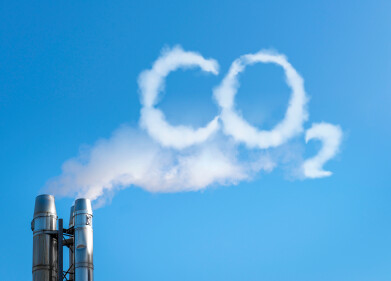Fuel for thought
10 Everyday Products that Surprisingly Contain Petrochemicals
Aug 27 2014
Petrochemicals are chemicals that are manufactured from petroleum or natural gas. They were first developed and integrated into the world of consumer products as late as the early 20th century, making petrochemistry a relatively young industry.
After experimentation with synthetic rubbers in the early 1900s, the first plastic made from petrochemicals, Bakelite, was pioneered in 1907. The first solvents began to appear in the 1920s, followed by polystyrene in the following decade.
From there it slowly began to infiltrate our daily lives and many household products. However, the finished product is so different from the initial raw material that we rarely distinguish which products contain petrochemicals and which do not.
Here are 10 familiar products which surprisingly contain petrochemicals. Do any of these astonish you?
1) Food
As vague as this may sound, most of the food in your fridge will contain a small amount of petrochemicals. This is because the fertilisers that are sprayed on crops are absorbed by the plants, and antibiotics and pesticides accumulate easily in milk and in animal flesh. Furthermore, the wax coating you find on many fruits and vegetables such as bell peppers, potatoes and cucumbers is produced from petrochemicals. Food colouring also derives from petrochemicals, so any foodstuff with an artificial pigmentation will contain them.
2) Food Packaging
Plastic, including wraps, as well as Styrofoam and PVC that is used to package food all contain petrochemicals.
3) Beauty Products
Many skin-enhancing creams actually are composed of petrochemicals – this also applies to sun cream, baby lotion, shampoo, shaving foam and lipstick, among others.
4) Compact Discs
The surfaces of compact discs are washed and soaked in petrochemicals to help remove all impurities.
5) Nappies
Or diapers, for the American readers. Although there are organic nappies on the market, those containing petrochemicals are much more widespread.
6) Drugs
From aspirin to antihistamines, there are a multitude of drugs on the market which were manufactured using petrochemicals.
7) Tights
Or pantyhose, for America. The nylon which goes into the composition of tights couldn’t be manufactured without petrochemicals. This applies to nylon rope or anything else made of the substance as well, of course.
8) Balloons
Ever wonder where that unique stretchy rubber comes from? Yep, petrochemicals.
9) Sunglasses
The plastic frame of glasses and sunglasses is often composed of petrochemicals.
10) Crayons
That’s how they achieve such wonderful colours! Keep that in mind next time your infant decides to snack on an orange one.
Of course, this list is by no means an exhaustive one and the full extent of household products which contain petrochemicals is far, far longer. As such, it is imperative that we know what chemicals are in the products we use and consume. Extensive research is still being undertaken in order to try and make the process of petrochemical testing more efficient and economic. The article, Potentiometric Titration of Surfactants without any Chloroform, talks about an innovative new method of analysis which dispenses with the inconvenient necessity of chloroform in the testing process.
Digital Edition
PIN 26.1 Feb/Mar 2025
March 2025
Analytical Instrumentation - Elemental Analysis for Quality and Process Control at Refineries, for Lubricants and Wear Metals in Engine Oils - Synthetic Lubricants: New Developments - Scaling...
View all digital editions
Events
Mar 31 2025 Hannover, Germany
Mar 31 2025 Beijing, China
Apr 02 2025 Saigon, Vietnam
Apr 02 2025 Atyrau, Kazakhstan
Apr 08 2025 Birmingham, UK



















